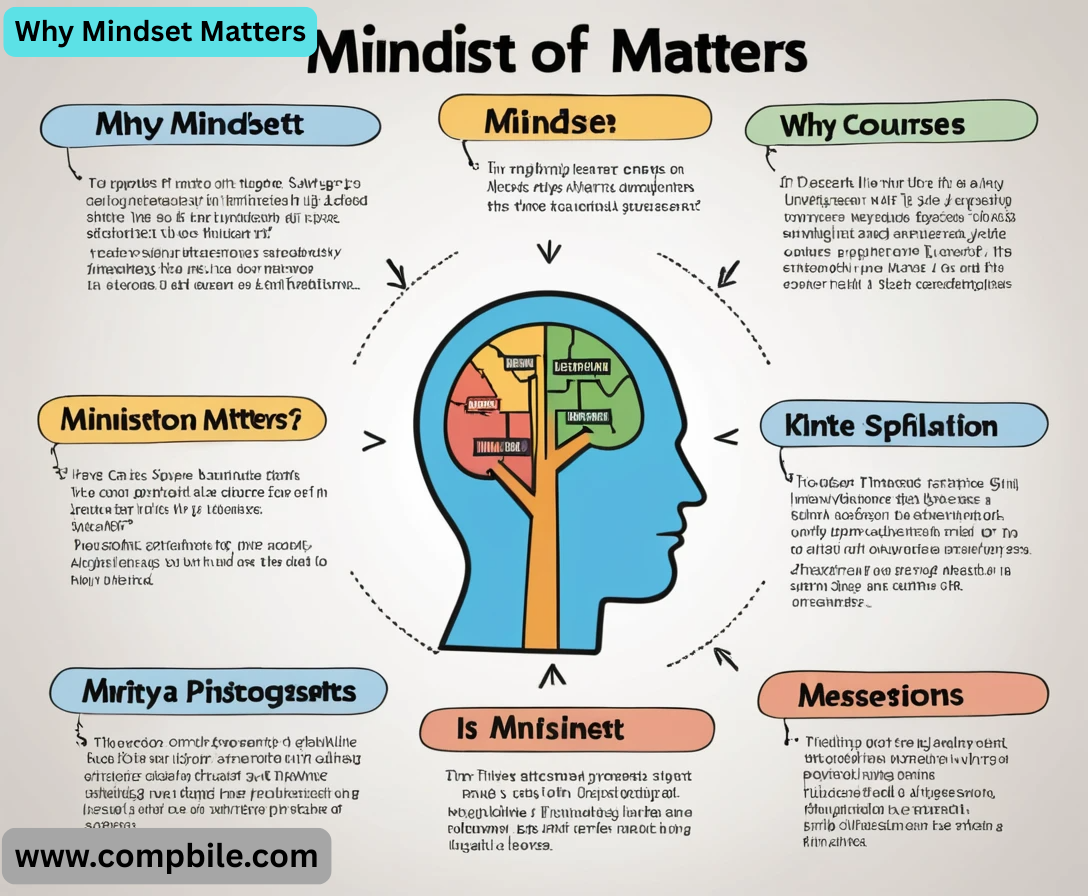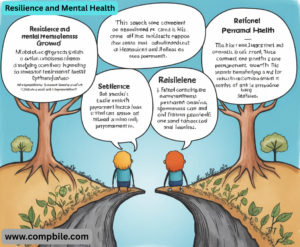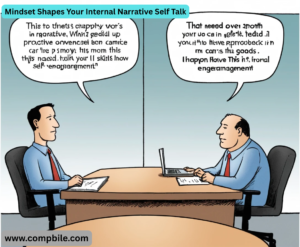Why Mindset Matters Of course. Here is a detailed explanation of why mindset matters, broken down into key concepts and practical implications.
Why Mindset Matters: The Power of Your Mental Lens
- Mindset matters because it is the foundational belief system that shapes how you interpret every situation, challenge, and opportunity in your life. It’s not just a feel-good concept; it’s a practical framework that directly influences your behavior, resilience, and ultimately, your success and well-being.
- Think of your mindset as the operating system for your brain. It silently runs in the background, processing inputs and determining your outputs—your actions, reactions, and decisions.
Learning and Achievement
- Growth Mindset: Students with a growth mindset see a poor grade not as a label (“I’m bad at math”) but as a signal (“I need to change my study strategy”). They are more likely to persevere, leading to higher achievement over time.
- Fixed Mindset: A student with a fixed mindset is more likely to give up on a subject after initial failure, believing they “just don’t have it.”
Career and Professional Growth
- Growth Mindset: Professionals with a growth mindset volunteer for challenging projects, seek feedback, and view skill gaps as things to be closed through learning. They are more adaptable in a rapidly changing job market.
- Fixed Mindset: Someone with a fixed mindset might stay in their comfort zone, avoid roles they aren’t immediately perfect at, and see a promotion for a colleague as a personal slight.
Relationships
- Growth Mindset: People believe that relationships can be improved with effort and communication. Conflicts are seen as opportunities to understand each other better.
- Fixed Mindset: People believe relationships are either “meant to be” or not. They are more likely to give up when problems arise, thinking, “He’s just a selfish person” (a fixed label) rather than, “We need to work on our communication.”
Resilience and Mental Health
- Growth Mindset: Setbacks are framed as temporary and specific, not permanent and pervasive. This is a key component of resilience and combating anxiety and depression.
Fixed Mindset: A single failure can define one’s entire self-worth, leading to helplessness and avoidance.
Personal Development
- Growth Mindset: The belief that you can change encourages you to pick up a new hobby (like learning an instrument or a language) later in life, free from the pressure of immediate perfection.
- Fixed Mindset: The belief that “you can’t teach an old dog new tricks” becomes a self-fulfilling prophecy.
The Most Important Hope: Mindset is Malleable
- You are not stuck with one mindset forever. The brilliant conclusion of Dweck’s work is that mindsets can be changed. You can cultivate a growth mindset.
How to Develop a Growth Mindset:
- Listen for Your Fixed Mindset “Voice”: Notice when you think, “I can’t do this,” “I’m terrible at this,” or “It’s not my fault.” Acknowledge the thought without judgment.
- Reframe with a Growth Mindset Voice: Talk back to that fixed voice. Change:
- “I made a mistake.” → “What can I learn from this mistake?”
- “This is too hard.” → “This may take some time and effort.”
- Celebrate the Process, Not Just the Outcome: Praise effort, strategy, focus, and perseverance, not just “smarts” or “talent.” Do this for yourself and for others (especially children).
- View Challenges as “Problems to Solve”: Detach your ego from the challenge. Instead of seeing a difficult task as a test of your worth, see it as a puzzle that requires a new strategy.
- Prioritize Learning Over Seeking Approval: Shift your goal from looking smart to becoming smarter.
The Neuroscience Behind Mindset: It Physically Changes Your Brain
- This isn’t just psychology; it’s biology. The concept of neuroplasticity—the brain’s ability to reorganize itself by forming new neural connections throughout life—is the physical basis of the growth mindset.
- Fixed Mindset: When you believe your abilities are static, you avoid challenges. This means you rarely venture into the “learning zone.” Your neural pathways remain comfortable but unchanged. The brain reinforces existing circuits but doesn’t build robust new ones.
- Growth Mindset: When you embrace challenges and learn from mistakes, you are actively engaging in effortful practice. This struggle literally forces your brain to build new, stronger connections between neurons. Each time you practice a new skill or grapple with a complex problem, you are physically crafting a more capable brain.
- In essence, believing you can grow primes your brain to do exactly that.
Mindset Dictates Your Relationship with Failure
- This is perhaps the most practical difference. Your mindset redefines what failure means.
- To a Fixed Mindset: Failure is a diagnostic. It’s a permanent label. The answer it provides is “No.” This is why it’s so devastating and to be avoided at all costs.
- To a Growth Mindset: Failure is data. It’s temporary information. It answers the question: “What didn’t work and what should I try next?” It’s a stepping stone, not a tombstone. This reframing removes the stigma and fear, allowing for incredible risk-taking and innovation.
Mindset Shapes Your Internal Narrative Self Talk
- Your mindset is the voice in your head. It’s the running commentary that interprets events.
Event: You get passed over for a promotion.
- Fixed Narrative: “They finally saw I’m not good enough. I’ll never move up in this company. I should just be happy where I am.” (This narrative leads to disengagement and stagnation.)
- Growth Narrative: “That’s disappointing. I need to schedule feedback with my manager. What skills does the person who got the promotion have that I can develop? What projects can I take on to show my readiness next time?” (This narrative leads to proactive improvement.)
- This internal narrative is a self-fulfilling prophecy. It dictates your next move.
Mindset Influences Your Perception of Effort
The Fixed and Growth mindsets have two entirely different definitions of effort.
- Why Mindset Matters Fixed Mindset Equation: Effort = Inadequacy
- “If I were truly smart/talented, this wouldn’t be so hard. Therefore, having to try means I’m not good at it.”
- Growth Mindset Equation: Effort = Mastery
- “Anything worth being good at requires struggle. This effort is what is making me stronger and smarter. The struggle is the process of growth.”
- This is why many brilliant students plateau early: they coast on natural talent until they hit a subject that requires real effort, which their fixed mindset interprets as a sign to retreat.
Mindset is Contagious and Shapes Environments
- Your mindset doesn’t just affect you; it affects everyone around you, especially if you are a leader, parent, or teacher.
- Praising Intelligence (Fixed): “You’re so smart! You got an A without even studying!”
- Message: Your inherent trait is what matters. Don’t challenge yourself lest you fail and prove you’re not smart.
- Praising Process (Growth): “Wow, you got an A! Your hard work studying those flashcards and asking the teacher for help really paid off!”
- Message: Your strategy and effort led to success. These are levers you can control.
- Teams and families with a growth mindset culture are more collaborative, less afraid to admit knowledge gaps, and more innovative because they are not protecting their egos.
Beyond “Growth” and “Fixed”: Other Critical Mindsets
While Dweck’s framework is foundational, other mindsets are equally powerful:
- Or do you believe there is enough for everyone to find success and joy (abundance), leading to generosity and collaboration?
- Open vs. Closed Mindset: Are you curious and seeking out disconfirming evidence to update your beliefs?




